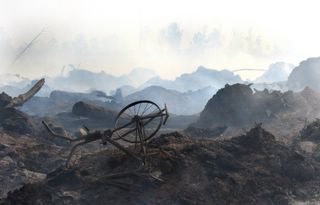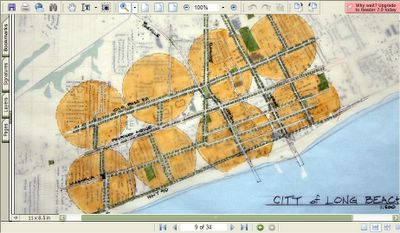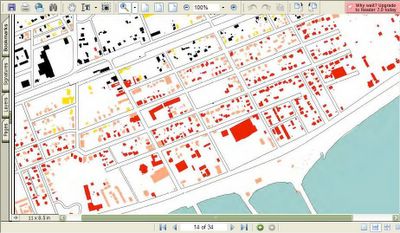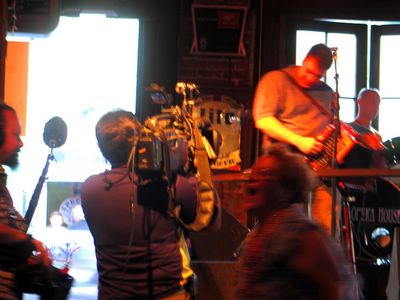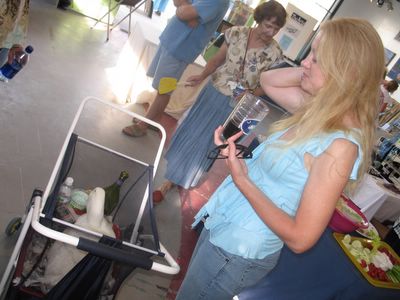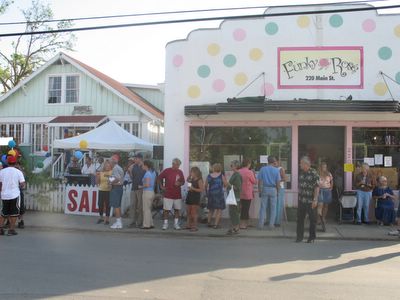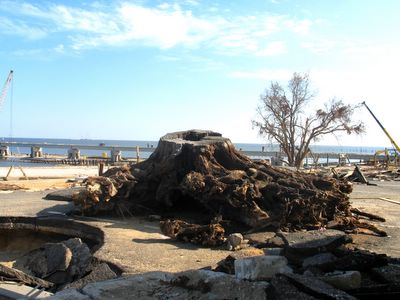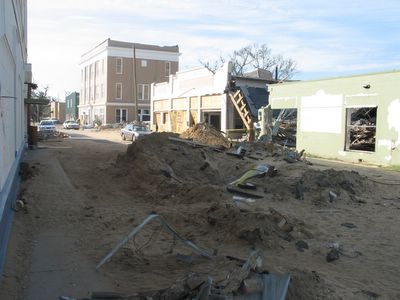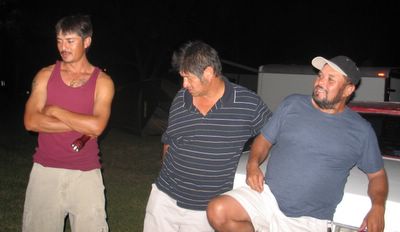And the news:
There is only one bookstore and no library operating full-time in all of South Mississippi. While many who may not think of Southerners being all that literary, and I will not waste my energy disproving something so moronic, there were dozens of good bookstores down here that were ruined by the storm.
The death toll situation has turned interesting. There are lots of rumors, some from officials themselves, about the numbers for South Mississippi being a lot higher than officially reported. The coroner in charge stands by the 167 figure produced recently. There are also only around 101 still unaccounted for. 167 is a lot of people. I dare not venture to guess why officials seem to "wish" in a way that they could get the "truth" out of the coroner. Perhaps it's similar to the sensationlism that was reported about events in the Superdome and convention center. Same thing happened around 9-11 too. It's damn hard to keep your head in these situations.
I do admit that it is hard to believe that all those people I saw while driving around the night before the storm made it out okay. Glad it seems to have happened though.
In a way it reminds of that tree cutter in Long Beach, who survived by diving out of the second story window of his apartment as the floor gave out and clung to the top of an oak tree for eight hours. I guess a lot of people got lucky.
I've been working on a story about a bizarre incident that took place in a Red Cross shelter in Long Beach, the editor-butchered version of which appears below.
I am working on a bigger story about the Latino community in general, as many will move here for the contracting work. The Dept. of Homeland Security has waivered penalties for companies hiring illegals to do work down here. You can begin to imagine the influx of Latinos that will accompany that and who will then stay for the weather and relatively reasonable cost of living.
The following appears courtesy of the SunHerald:
When 20 law enforcement officers went to a Red Cross shelter in Long
Beach last week and asked for identification for many of the people
there, officers said they were responding to complaints.
But people who run the shelter and the people living there said it is
peculiar that the only people they asked for identification were
Latinos.
There are at least three versions of what happened on Sept. 28 at the
American Red Cross shelter at the West Harrison Civic Center on Espy
Avenue.
The Harrison County Sheriff's Department said it went to the shelter to
help protect the safety of shelter residents. Red Cross officials
manning the shelter said they were surprised that officers showed up.
Latinos said they were singled out.
Shelter Manager Scott Steiner was standing in the kitchen around 8 p.m.
that night when he saw flashing lights through the window. He said to
his surprise he discovered several lawmen rounding up Latinos, about 50
in all, in the corner of the parking lot.
About the same time, Aaron Gonzalez said he walked through the front
door of the shelter to take a shower and was grabbed firmly by an
officer. Gonzalez, a tough-looking young man with tattoos and angular
facial features, said the officer demanded his Social Security card and
drivers license, and then radioed in his name to see if he had any
outstanding warrants.
Jose Luis Rubera, a friend and occasional co-worker of Gonzalez, said
while he was being lined up and told to remove his shirt along with
dozens of other Latino men, "an officer said he was looking for child
molesters."
Assistant shelter manager Mark Dragovich returned to the shelter from
doing outreach work shortly after the men were rounded up. He said a
lawman told him they were responding to a 911 call involving looting in
a nearby neighborhood with a Hispanic suspect and that they had told the
men to remove their shirts because the looter had a distinguishing
tattoo.
Capt. Windy Swetman, a Sheriff's Department spokesman who was not on
the scene, said he wasn't aware of a report of looting.
Swetman, and Capt. Tony Sauro, who coordinates multi-agency law
enforcement efforts post-Katrina, said deputies were responding to
complaints made prior to Wednesday involving incidents with drinking and
drugs in tents outside the shelter, where most Latinos were staying.
Steiner and Dragovich acknowledge that there had been problems in the
tents outside the shelter, but deny making the 911 call that
precipitated that incident. After the Sept. 28 incident, Red Cross
officials decided to disallow all tent use outside the shelter.
Vidala Leal-Rodas said her husband, who is from Mexico and has fair
skin and sandy-blond hair but speaks little to no English, was not lined
up or questioned at all despite walking right by a group of officers
while the incident was taking place.
According to Red Cross officials and several witnesses, the lawmen gave
the group of Latinos three options after their records and papers were
checked: get on a bus to Houston, Atlanta or Mexico.
Steiner said he and his coworkers came up with a fourth option: call
the many contractors who employ the men and see if space for their tents
could be set up either on a business site or in other places.
The Department of Homeland Security announced shortly after the storm a
waiver of penalties for employers who hire victims of Hurricane Katrina
without proper documentation.
Nearly all the men were able to find contractors to take them in. As a
result, none of the workers got on a bus, Steiner said.
Rubera said he had been living and working in Pass Christian for nearly
five years. While there were at least a dozen people or families who
showed up after the storm looking for work, Rubera said most had been
established in the community and they all worked together.
The Red Cross welcomes anyone who says they've been displaced by a
disaster and they need shelter, said spokeswoman Mary Lee Conwell.
She said if there were people in the shelter who were not displaced
because of Katrina, they now understand that they are not supposed to
stay there.
"We were not sure how many of them were displaced South Mississippians
or were they contract workers just coming in here and using these Red
Cross shelters as base camps," Swetman said.
Sauro said they also went to see if the men in tents needed anything.
He said they had planned to help relocate them if they had family or
friends in other states. Sauro said authorities soon learned that the
men in tents didn't want to leave; they were in town to work.
Swetman said it is law enforcement's responsibility to ensure the
safety of shelter residents.
"Nobody was arrested. We didn't fingerprint or ID everybody," Swetman
said.
While the Latinos at the shelter claim they were singled out, Swetman
denies any prejudice.
"We in law enforcement cannot help what perceptions people have," Sauro
said. "We in law enforcement can only be sensitive to their perceptions.
That's why we went in there with no (U.S.) Border Patrol, no immigration
(officials)."












